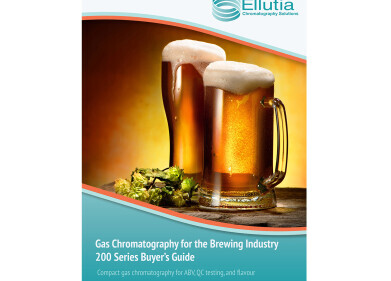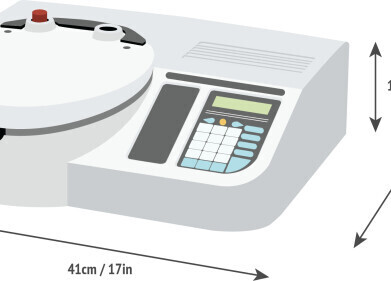Chromatography
What Will Christmas Dinner Be Like in the Future?
Dec 06 2016
As December 25 looms, households across the globe are scurrying to secure their Christmas turkeys. In the US alone, the National Turkey Federation estimates that Americans will consume around 22 million turkeys on Christmas Day, with Brits set to gobble down a huge 10 million birds.
While most will head to the butcher or supermarket to purchase their Christmas dinner centrepieces, biotech scientists are predicting that in less than two decades lab-grown turkeys could grace festive tables. Paul Mozdziak, professor of poultry science at North Carolina State University is pioneering the concept, and predicts that the first ‘artificial’ turkeys could appear by 2030.
The ‘cellular agriculture’ revolution
The idea of "cellular agriculture" may seem outrageously modern, though in 1931 Winston Churchill prophesised the exact scenario, predicting that within half a century the world would "escape the absurdity" of chicken farms and instead embrace lab-grown meat. Churchill’s vision is now materialising, with advocates maintaining that "cellular agriculture" is quickly emerging as an ethical and economical alternative to factory farming.
“Years from now, when people are in the grocery story trying to decide if they want to buy traditional versus cultivated meat, I am 100 per cent sure that culture meat is going to be just as cheap, if not cheaper,” comments Mozdziak in an interview with MIT Technology Review. “You’re not giving nutrients to bone, you’re not giving nutrients to the alimentary tract.”
Growing turkeys from scratch
So how will scientists grow turkeys from scratch? Mozdziak has revealed that in the future meat will be grown in huge 5000 gallon drums, with lab operators using small slithers of breast to isolate the unique stem cells that form the meat’s muscle fibre. These cells will then be soaked in a nutrient rich cocktail of sugar and amino acids, a ‘soup’ that mimics a turkey’s insides and triggers the cell division process.
Ethical and eco-friendly
While the concept is dripping with controversy, lab-grown meat has already won the support of both animal rights campaigners and environmentalists. Not only will it ease the world’s reliance on battery animals, but it will also save precious resources and minimise the carbon footprint of the planet’s immense livestock farming industry. Some experts maintain that cellular agriculture within the beef industry could slash greenhouse gas emissions by 90%.
It’s an exciting concept, though the technology is still in its early stages. Currently, culture meat is not an economically viable solution, with the first lab grown hamburger taking more than three months to grow, at a cost of more than £220,000. In Mozdziak’s lab, growing just one turkey would require around £20,000 worth of growth serum.
That said, over the next 15 years advancements will revolutionise the process, with scientists estimating that over the course of three months a single satellite cell could undergo 75 generations of division, and create enough muscle to manufacture 20 trillion turkey nuggets. Teams are also exploring the possibility of growing 3D cells, which would significantly speed up the process, and drastically lower the cost.
Science plays an integral role in the food industry, with new developments continually revolutionising everything from consumer health to economic efficiency. ‘Healthy Fat in Chips and Sausages? A new Method for Extraction, Digestion and Analysis of Fat in Food Samples’ explores an exciting new method being used to determine saturated and unsaturated fatty acids in food samples, with a focus on popular foods such as chocolate, milk powder, sausages and potato chips.
Digital Edition
Lab Asia Dec 2025
December 2025
Chromatography Articles- Cutting-edge sample preparation tools help laboratories to stay ahead of the curveMass Spectrometry & Spectroscopy Articles- Unlocking the complexity of metabolomics: Pushi...
View all digital editions
Events
Jan 21 2026 Tokyo, Japan
Jan 28 2026 Tokyo, Japan
Jan 29 2026 New Delhi, India
Feb 07 2026 Boston, MA, USA
Asia Pharma Expo/Asia Lab Expo
Feb 12 2026 Dhaka, Bangladesh



















